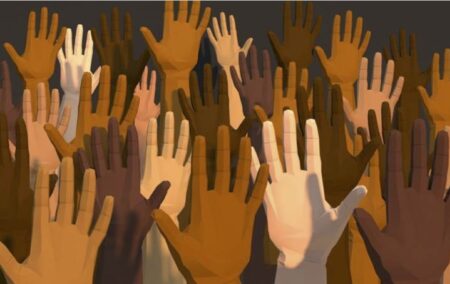South Africa had ‘klapped racism out of our advertising airspace, and if we build on that we can get rid of race-nationalist and race-Marxist politics too’.
So said Gabriel Crouse, Head of Campaigns at the Institute of Race Relations (IRR), in his submission to the SA Human Rights Commission’s (HRC) investigation into alleged racism in the advertising industry this week.
South Africans, he said, ‘must never be afraid to claim success where the work has been done’.
In a statement after his appearance before the HRC, Crouse pointed out that ‘(no) evaluation of the extent of racism in South African advertising products is possible without first knowing the massive extent of this industry’.
The number of ads flighted in the period January 21 – December 31 2021, the statement revealed, could be broken down as follows:
- TV – 7 562 515
- Radio – 1 851 101
- Print – 58 153 (undercounted, as not all publications monitored)
The IRR said: ‘Of all those ads in 2021, precisely zero were brought forward by the HRC for alleged racist content. This indicates that the advertising space has done exceedingly well.
‘Going back to 2013, the HRC’s Terms of Reference mentions only five allegedly racist adverts. Extrapolating from the 2021 numbers, on the assumption that they represent an average number of ads per year, there have been roughly 80 million flightings in the period in which the HRC has referred to only five allegedly racist adverts.’
It noted: ‘Moreover, the most eyebrow-raising of these adverts, the TRESemme/Clicks hair advert, has recently been exculpated by the Equality Court, which found that the outrage was caused by a cropped version of the original advert, and designed to cause alarm.
‘According to Judge M J Dolamo: “On the original [hair] advertisement, the six images appear below a banner that shows a black woman with a beautiful Afro-hair side-by-side with a woman who appears to be a Caucasian sporting beautiful hair.”
‘This was removed from the social media posts that went viral, which the court found to be probable cause for the unfortunate events which followed. The IRR is offering this context to the HRC, which otherwise might not have known the extent to which social media cropping can impact on public perceptions.’
The statement said that the remaining adverts in the HRC Terms of Reference did not appear to be racist, ‘leading to the conclusion that out of tens of millions of adverts since 2013 none have been racist’.
The IRR said it ‘wishes to thank the HRC for the opportunity to take the stand and to present evidence. While it is our view that race relations are in a very good place in South Africa we will continue to advocate for the ideas and policies that will, in our view, push the country into a better space.’
The statement concluded: ‘Central to the task of improving race relations in spheres that are not as enlightened as advertising products is the improvement of poor South Africans’ material conditions through adherence to non-racial principles under the Rule of Law.’

